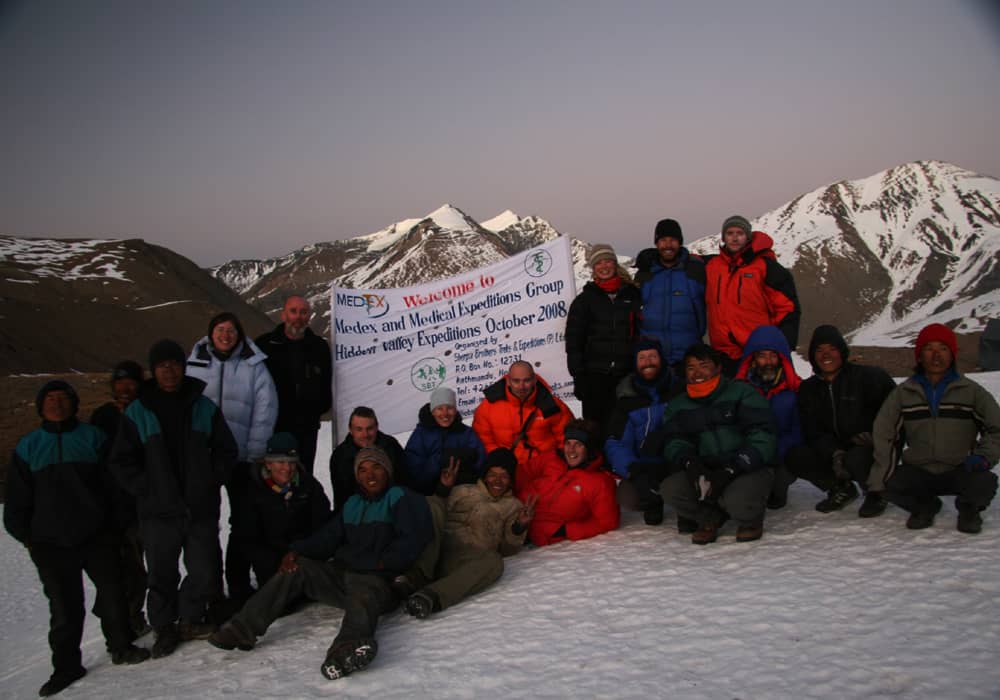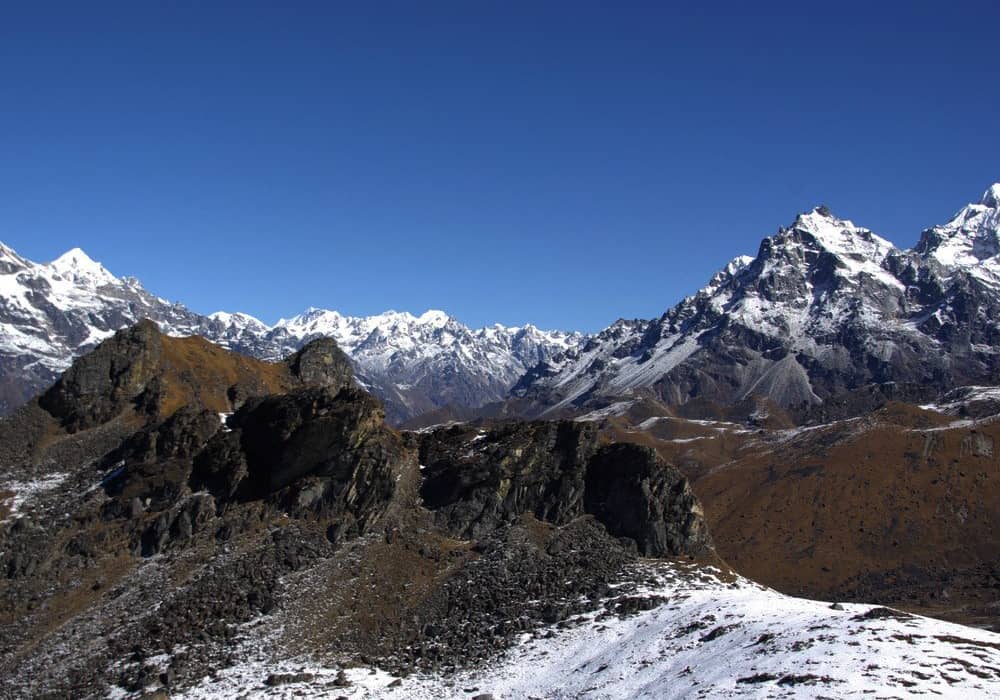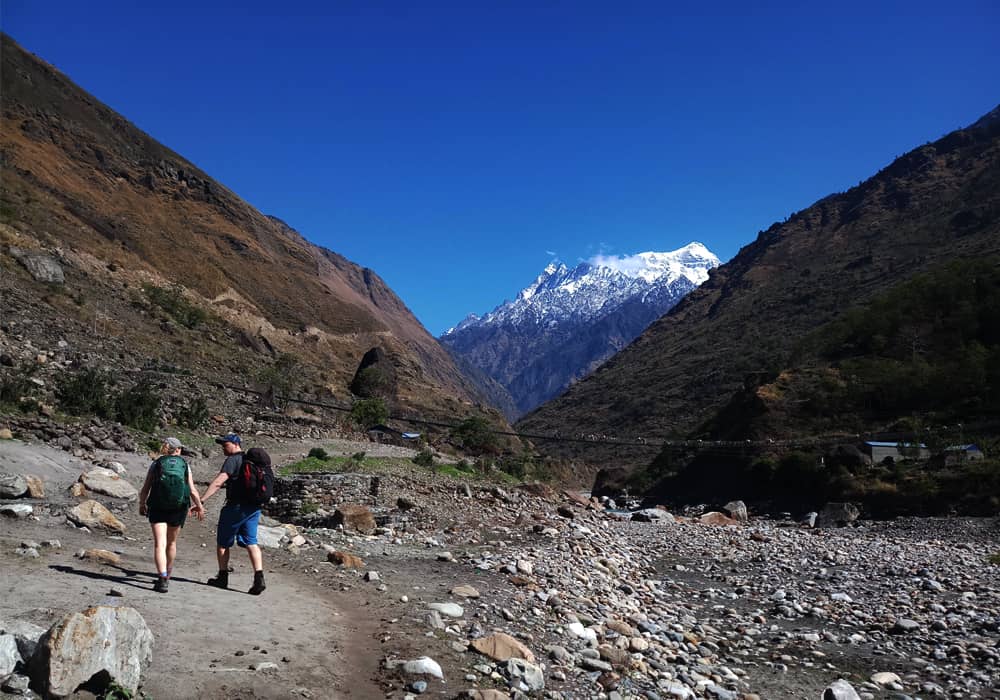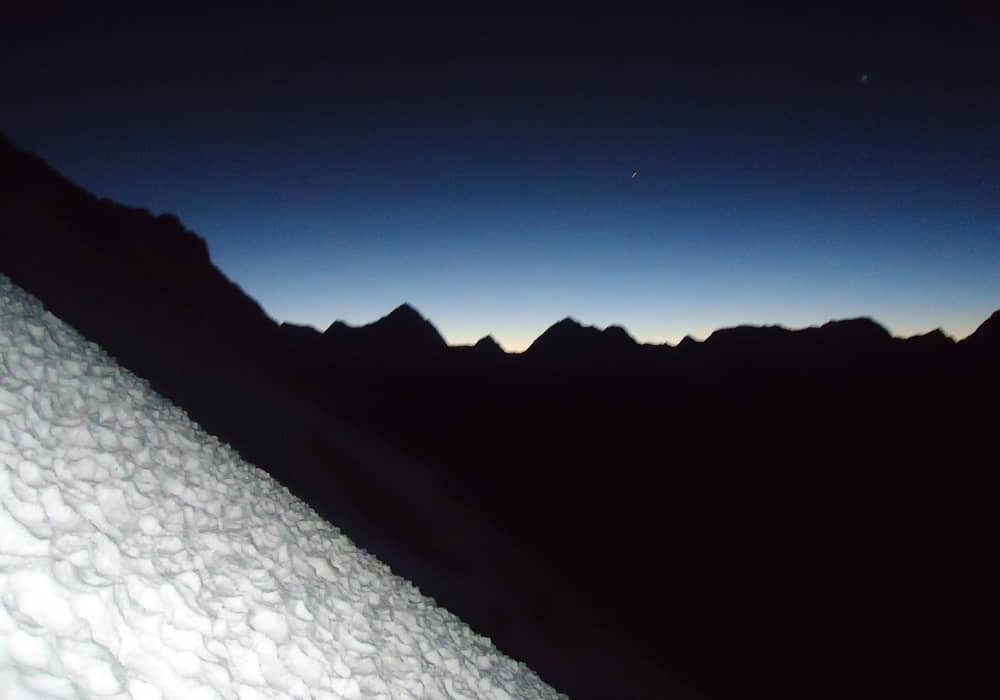During this trip several part of the trail integrates the demanding walking rank. Due to increasing altitude level and variable geographical terrain. Region of Renjo la 5,363, Chola pass 5,420 m and 5,535 Kongmala pass are the highest and bodily demanding trail of usual 6- 7 hours daily walk. Although, most of the initial day trek begins from lower point with slowly but sure and unhurried walking pace offer this trip genuine sense to have achievements and success. Participants planning and attempting for this trip is recommended having physically fit, positive attitude and obviously in good health. Regular exercise or jogging couple of months prior to the trip is essential. It is important that participants with pre-existing health check problems or conditions should make these known to us at the time of booking. Medical and evacuation expenses are the responsibility of the participants.
Accommodation and food
In Kathmandu: 3 star Deluxe hotel with bed and breakfast on twin sharing.
On trek: 16 days twin sharing accommodations in tea house (mountain trekking guest house) and food on full board (Breakfast, Lunch, dinner and tea coffee). Tea houses are small mountain hotels and run by local families them being small hotels, you can expect a certain level of comfort. They are comfortable to the extent that you have a place to sleep and that you can enjoy home-cooked meals
Travel Insurances
Sherpa Brothers Treks Expedition Pvt. Ltd. take every care to make our treks safe and enjoyable. All our routes are scouted to ensure the trails are safe and the facilities along route are of an acceptable standard. In addition, we have vast experience of trekking at altitude and are trained to deal with Acute Altitude Sickness. However, due to terrain, weather and altitude, risk is not always predictable in the Himalaya. To ensure you have a worry free time with us, personal travel insurance is essential to cover the cost of unforeseen accident, illness or rescue. The costs involved can be large and personally overwhelming in the unlikely event of accident or injury.
All Nepalese staff, guides and porters employed by Sherpa Brothers Treks and Expedition Pvt. Ltd. are covered locally but we regret that we cannot offer insurance for our clients.
Sherpa Brothers Treks and Expedition Pvt.Ltd. is not liable should anything go wrong due to unforeseen circumstances.
When choosing an insurance policy be sure to confirm with your insurer that your policy covers adventure holidays and trekking at high altitude. Some insurers makes special exception for these types of trip so please read the small print and contact your insurer if you are unsure.
Required gears check list
Your gear is your best friend while being out in the mountains. In fact, it doesn’t material where you are going, your equipment is central. In extreme cases, gear can make the difference between life and death.
Below we present you a basic complete packing list suitable for this trek.
Hiking gears
Day bag 1 – A porter will carry your primary gear in duffel bag (up to 12kg per trekker). You’ll need to bring your own daypack. 30–35L is adequate.
Dry Bag 1 – This protects your bag and clothing from potential moisture, wet object and rain.
Walking pole 1 – ( if necessary) Trekking poles can decrease the impact on your joints. They are excellent for knees while going down. We recommend adjustable Black Diamond trekking poles.
Water bottle or camel bag 1 – Capacity to carry 3 litre of water. Options: 2 x 1.5 litre wide mouth nalgene bottles or 2 litre platypus + 1 litre water bottle.
Head light 1 – You will need a headlamp with a good light output for any late-night restroom trips, as well as importantly for the high passe day such Renjo la, Chola, Kalapathar hike and Kongmala pass. Petzl make renowned and affordable headlamps.
Knife / Multi tools – 1
Cloth and body wear
Down jacket 1 – You’ll need this for the three passes as well as in the evenings at lodge camp when you’re tired, you feel the cold a lot more.
Sleeping bag 1 – rated 0°F, -20°F.
Light or medium wight warm hiking trouser 2 – an option of convertible trousers.
For the colder parts of the trek you’ll need good winter hiking pants – just make sure they are breathable.
Warm liner 1 – For extra warmth in sleeping bag.
Towel – 2
Warm and sun hats 1 – lot of heat is lost through your head, so be sure to get a warm thermal hat as well as one that protects your neck from the harsh rays of the sun.
Fleece / jacket and pants 1 – Modern technical fleeces (such as Polartec) make excellent insulation layers.
Windproof jacket and Pants 1 – pants with full-length zips make getting them on and off quick and easy.
Long and half sleeve hiking shirt 3 – As per you body size lightweight, moisture wicking long and short sleeved shirts.
Buff for (neck and head) – 1
Walking boot 1 – We recommend light- to mid-weight waterproof boots with good ankle support. You don’t need to go full-mountaineering boot.
Gloves / mittens 2 – For the cold nights through the trek and for the cross day, we recommend heavyweight, insulated, preferably water resistant gloves.
Warm hiking socks (wool / synthetic) 3-4, pairs of outer socks and 2-3 pairs of liner socks. We also recommend bringing 1 x thick thermal socks for crossing day.
Gaiter 1 – Help keep your trousers clean in dusty, wet and muddy trail conditions
Flip flap/ Sandal 1 – To wear around after a day’s trek we recommend bringing a pair of sandals
Sun protection, health hygiene and water
Sun cream 1 – SPF 40+ Sunscreen is very important as the sun’s rays are much stronger at altitude.
Sun glass 2 – (incase of one broke) choose high UV protection glasses of any brand as sun intensity after 3500 is very high.
Sun hat 1 – if possible go for a hat that is wide-brimmed for protection, and has a neck cover if you aren’t going to be wearing a neck gaiter
Lip guard 1 – To keep your lip moisturized in dry air and the stronger sun ray
Tooth brush – 1
Face wash soap – 1
Sanitizer wipes – 2/2
Electrolyte/Sports drink powdered formula for adding to your water Water can get pretty boring, so it’s a good idea to bring along an electrolyte formula that’s flavored to your liking.
Snacks: Energy bars of your preference – plan for 2-4 per day Snacks such as energy bars, trail mix, and candy can help give you a quick energy boost while on the trail. Just avoid anything with caffeine in it.
Ear plugs – For light sleepers. Snoring travels in quiet high altitude lodges
Prescription medicine
Water purifier tablet / lightweight pen filter
Toilet paper – Bring two rolls of toilet paper, one to keep in your daypack for use on the trail, and one in your duffel for use at tea house camp. Taking the cardboard center out makes it easier to transport.
Menstrual product for her
Diamox (if using)
Blister plasters – different shapes and sizes
Antibiotic cream or ointment
Hairbrush/comb
Foot powder
Nail cutter
Personal belonging items
Passport
Cash Visa / credit card
Cell phone
Power bank backup and charger – The standard voltage of electricity in Nepal is 230 V and the frequency is 50 Hz. You can use your electric or electronic appliances in Nepal without a voltage converter.
Camera / Gopro
Reservation cancellations policy
There will be no fees associated with cancellations made more than 45 days prior to departure.
A penalty of 30% of the total trip cost will apply for cancellations made between 30 and 44 days prior to departure.
60% of the total trip cost will be lost for cancellations made between 15 and 29 days prior to departure.
If a cancellation is made 14 days prior to departure, there will be no reimbursement.
Additional specifications
When making your reservation, please let us know about any special needs you may have so that we can make responsible efforts to accommodate your requests and special requirements, as long as the locations and resources allow.




 Trip Grade :
Trip Grade :  Trip Durations : 17 Days From Kathmandu
Trip Durations : 17 Days From Kathmandu Highest Point : 5,535m / 18,157ft
Highest Point : 5,535m / 18,157ft Best Season : Sep, Oct, Nov - Mar to June
Best Season : Sep, Oct, Nov - Mar to June Meal Plan : Breakfast in Kathmandu and Full board on Trek
Meal Plan : Breakfast in Kathmandu and Full board on Trek

